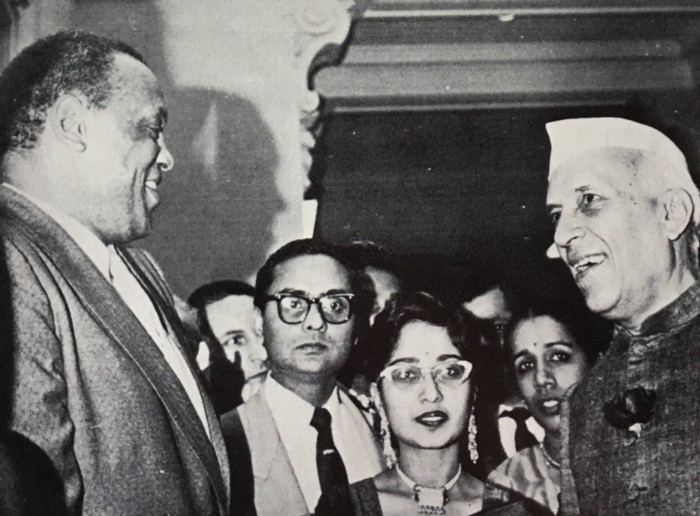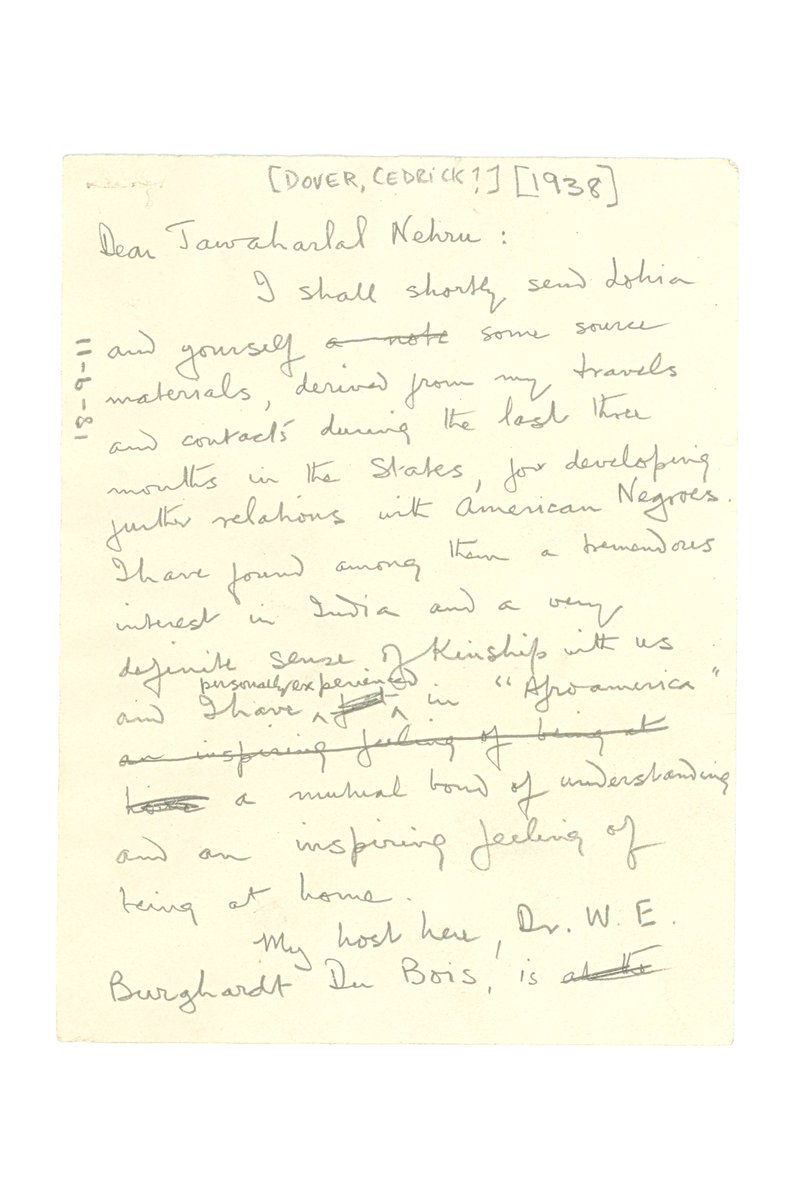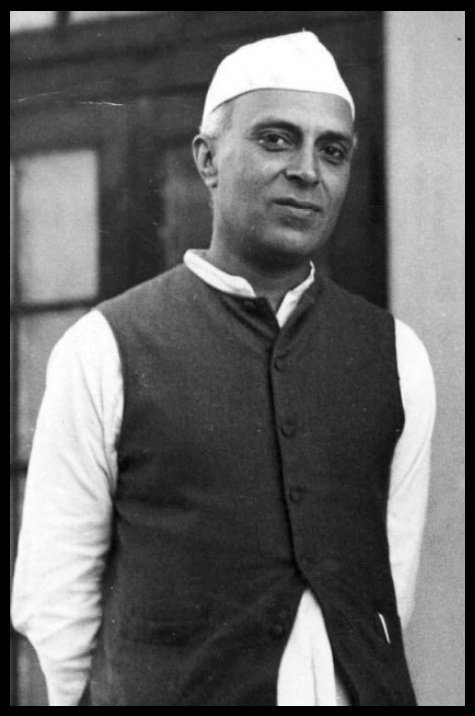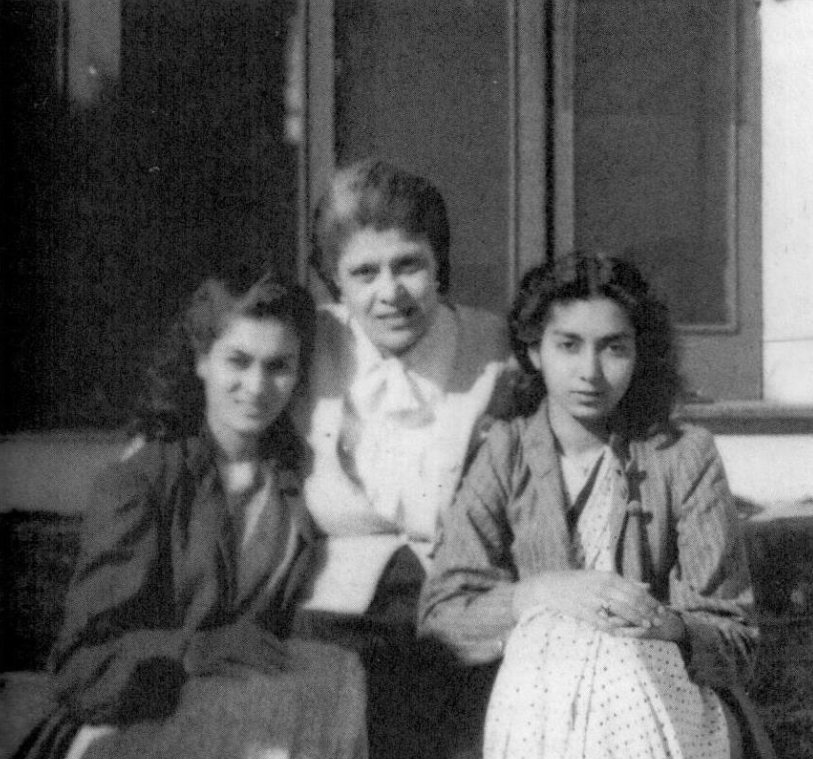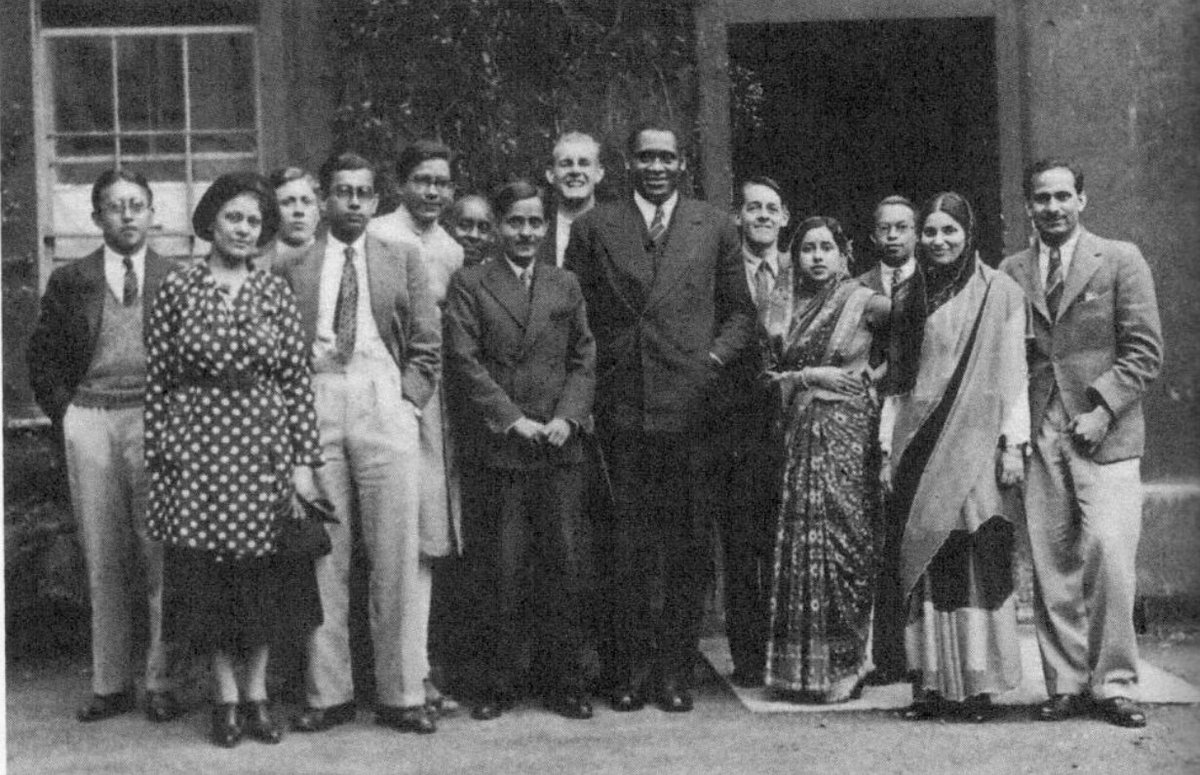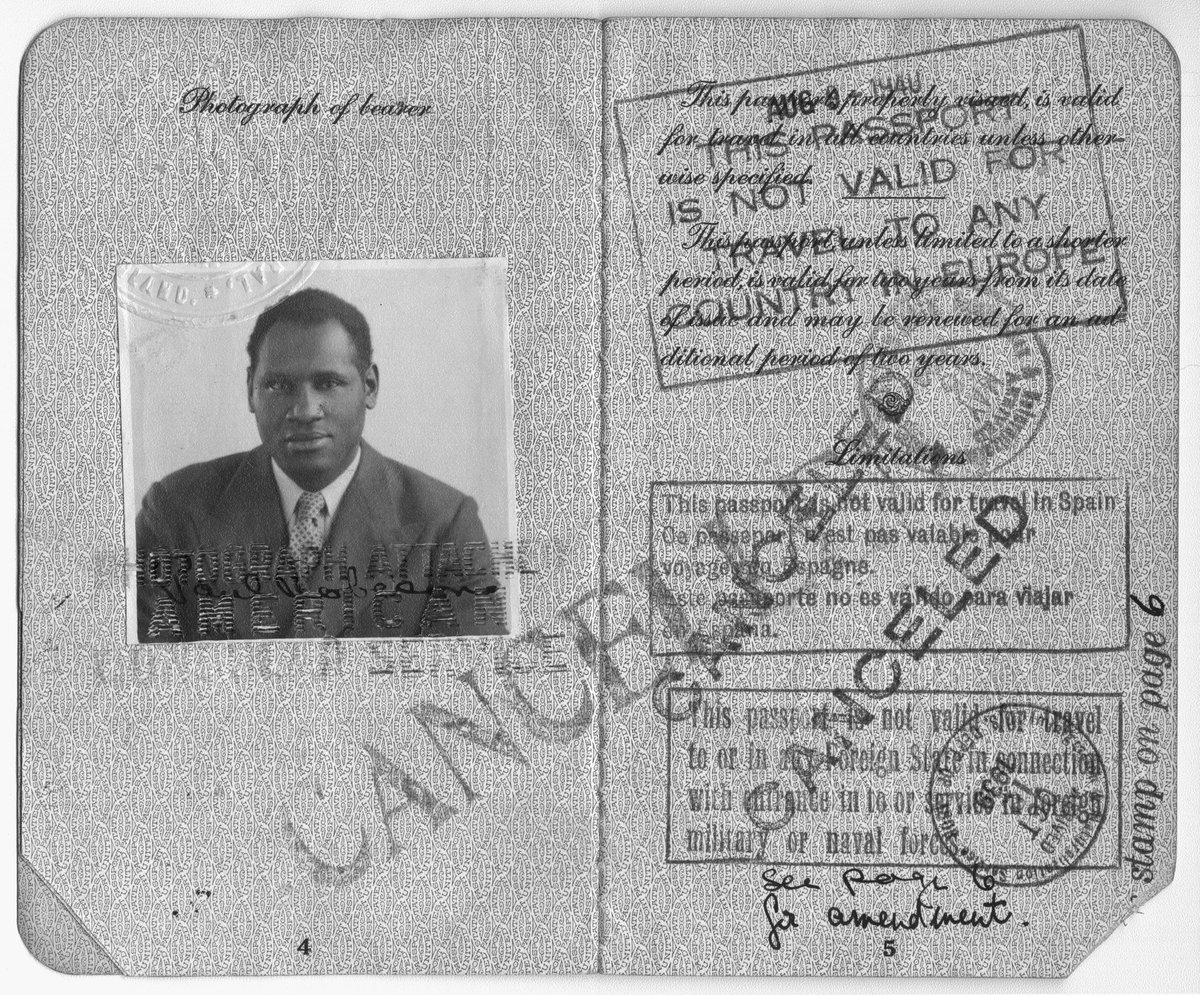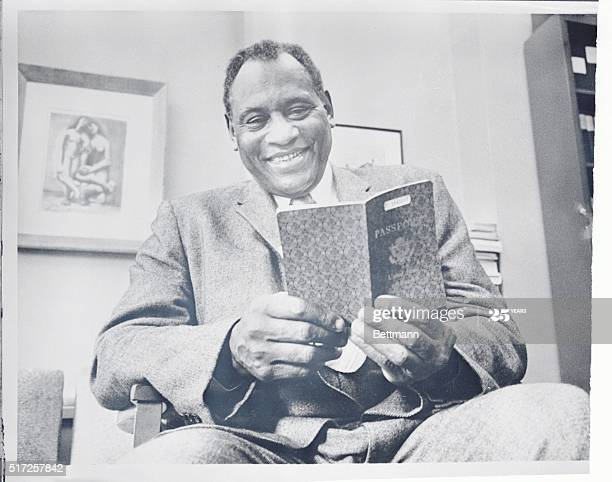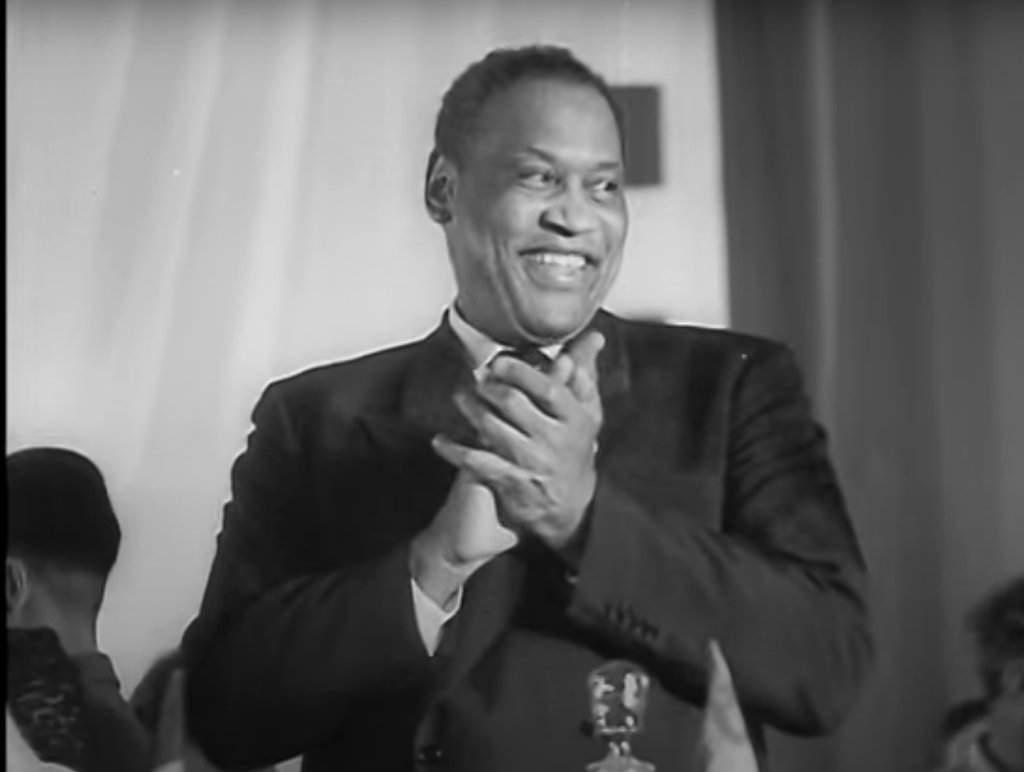Here is the [thread] on my research behind this Mixtape:
India held a big celebration for Paul Robeson on his 60’s birthday in 1958, organized by Nehru’s daughter, Indira Gandhi, at a time where Robeson was in house arrest in America & couldn't perform abroad. https://twitter.com/east_podcast/status/1335046647924076546
India held a big celebration for Paul Robeson on his 60’s birthday in 1958, organized by Nehru’s daughter, Indira Gandhi, at a time where Robeson was in house arrest in America & couldn't perform abroad. https://twitter.com/east_podcast/status/1335046647924076546
The history:
1938 - When Nehru came to London, Calcutta-born Eurasian scholar Cedric Dover arranged for a small private meeting between Paul Robeson and Nehru. Dover also corresponded with Nehru regarding an article Dover wanted Nehru to write for the African American press
1938 - When Nehru came to London, Calcutta-born Eurasian scholar Cedric Dover arranged for a small private meeting between Paul Robeson and Nehru. Dover also corresponded with Nehru regarding an article Dover wanted Nehru to write for the African American press
...Nehru would eventually become the most prominent Indian supporter of African American struggle. He developed his own understanding of non-white unity. Like Du Bois and Dover, Nehru defended non-white solidarity in part as a response to a history of common oppression.
Robeson and Nehru met over dinner after Nehru visited one of Robeson’s plays. Robeson had recited some classic Hindu poetry in the original Hindi. He was so moved by Robeson's presence that he penned an ode to him, informing readers that:
“you have been the voice of man...the song of germinating earth/and the movement of nature.” This homage was a reflection of the fact that Robeson’s signature song, Ol’ Man River was adapted into several South Asian languages with often the Mississippi River changed to Ganges.
1938 - [I am not sure why but] Robeson’s wife Essie intervened with Soviet authorities in London to try to secure a visa for Nehru before India’s indepence. “Paul and I are fans of yours,” she said, adding that they had been “thrilled” to have the opportunity to speak with him.
“The Robesons and Nehru began to meet frequently, and Nehru later remembered that Essie “would dash in occasionally into my flat and announce, in the American way, that she was feeling like a million dollars.” Nehru clearly became fond of Essie
“There is even a hint that she and Nehru moved to the edge of having an affair—and that Essie was the one who backed off because of the “cultural divide” between them.”
1939 - Nehru was keen to tell Essie that he had “been in mountains for the last ten days”, as he was “trying to escape from the troubled politics of the plains below. It has been delightful,” as was his friendship with the Robesons.
1945 - East African soldiers stationed in Sri Lanka celebrated Robeson’s 47th birthday during the war. It was then that the formerly jailed Nehru, asked Robeson, “Is there any chance of coming to India?”
1946 - Nehru sent a secret meesage to “My Dear Essie” that “I often think of you and Paul.”
1947 - when Paul invited the new Indian ambassador to the US, Asaf Ali, to speak to the CAA, Nehru himself responded to Robeson and encouraged Ali to send a message to the meeting if he could not attend in person. The theme of the meeting “The United Nations and Colonial Freedom”
the All-India Peace Congress notified Robeson of his selection as president of its forthcoming meeting in Calcutta; and Nan Pandit, currently serving as India’s Ambassador to the United States, wrote Essie with a private message from her brother, Nehru.
Now Prime Minister, Nehru was coming to DC on a state visit. Because he would be an official guest of President Truman, Nan Pandit wrote, “his engagements are checked up by the State Department,” but “He has written to say he wants to see you and Paul privately for a good talk”
..Robeson refused the invitation to see Nehru. Because he felt that Nehru had been responsible for the large number of deaths among the Communists in the recent political strife in India. Robeson’s decision angered Essie.
1950 - Robeson was part of a small group invited to attend an intimate reception in honor of Vijaya Lakshmi Pandit India’s Ambassador to the U.S.
1950-58 - Robeson passport was confiscated by the U.S State Department resulting in a virtual house arrest for such internationally acclaimed artist.
1958 - Robeson had heard from an Indian official at the UN that he had an “urgent letter from Indira Gandhi the daughter of Prime Minister of India, asking that you send a greeting to the people of India via tape,” Robeson send over the tape along with a message from Essie
…“we are delighted that you received the book and tape…” More to the point, “Paul is deeply moved, as we all are, by the fact that you in India have formed a Birthday Committee and that your father [Jawaharlal Nehru] wrote a marvellous letter in support of it…”
1958 (March) - With Nehru’s support abroad, it became easier for domestic forces to support Robeson. NYT was forced to publish an article on India’s support of Robeson
…The news of birthday celebration disturbed U.S. Embassy officials in New Delhi, especially Ellsworth Bunker. It also briefly threatened to damage diplomatic relations between the two countries, as Americans thought India is going full communist.
Unable to budge the Indian government, the War hawk Secretary of State Dulles and Ambassador Bunker, as a fallback protest, instructed all U.S. officials to refuse invitations to the birthday celebration events.
1958 (March 31th) - Essie sent thanks to both father and daughter: “There are just no words,” she wrote Nehru, “to express how deeply grateful we are for your statement.… It was beautifully said, and at exactly the right time for maximum effectiveness.”
1958 (June 16th) The Supreme Court, in a 5–4 split decision on the related Rockwell Kent & Walter Briehl cases (Kent v. Dulles), announced that the Secretary of State had no right to deny a passport to any citizen because of his political beliefs. Robeson gets his passport back.

 Read on Twitter
Read on Twitter